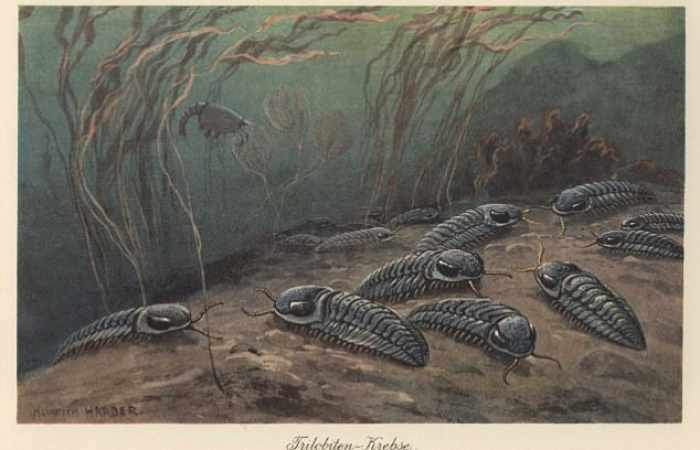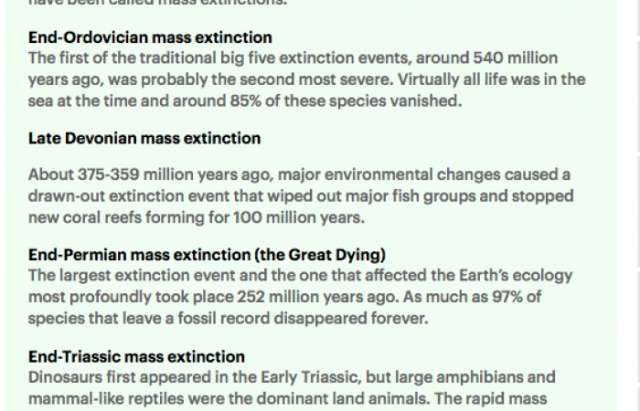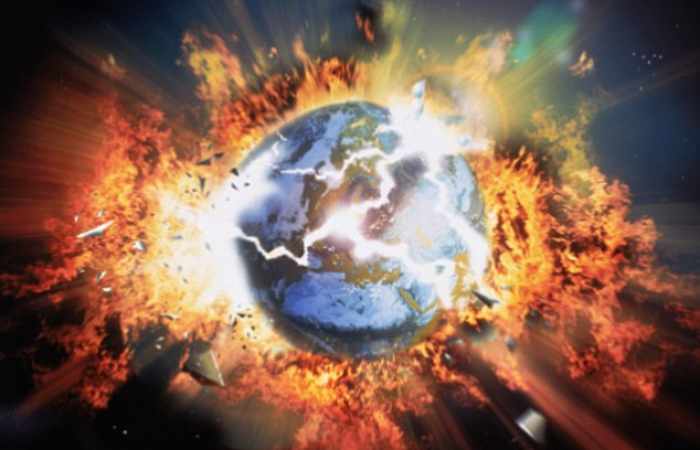Researchers said their findings should act as 'an important lesson for humanity' in how we tackle current climate change.
Earth has suffered through five mass extinction events - catastrophes where large swathes of species die out in a short space of time.
But no event was more deadly than the end Permian, which wiped out 96 per cent of sea life and 70 per cent of life on land.
Researchers have long debated what sparked the extinction event and it is thought that meteor showers and mass volcano eruptions played a role in the deadly event.
Now researchers from Brock University in Ontario have reexamined the trapped gasses in ancient rocks and have found that the extinction event was largely driven by climate change.
They said frequent volcanic eruptions led to large amounts of carbon dioxide being released into the air, which could have caused global temperatures to rise to 11°C (52°F).
The rising temperature led to the melting of permafrost that had locked in the vast amounts of methane.

The event wiped out 96 percent of marine species, including trilobites (pictured), and 70 per cent of life on land
Permafrost melting led to the release of this methane which sparked rapid global warming.
'Based on measurements of gases trapped in calcite, the release of methane…is deemed the ultimate source and cause for the dramatic life-changing global warming…observed at the end Permian,' the scientists, led by Dr Uwe Brand said in their research paper, published in Palaeoworld.
'Global warming triggered by the massive release of carbon dioxide may be catastrophic, but the release of methane from hydrate [permafrost] may be apocalyptic.

'The end Permian holds an important lesson for humanity regarding the issue it faces today with greenhouse gas emissions, global warming, and climate change.'
The researchers added that runaway global warming could have pushed average temperatures up to 29°C (84°F).
'The emission of carbon dioxide from volcanic deposits may have started the world onto the road of mass extinction, but it was the release of methane from shelf sediments and permafrost hydrates that was the ultimate cause for the catastrophic biotic event at the end Permian,' the researchers added.
/Daily Mail/
More about: #science
















































